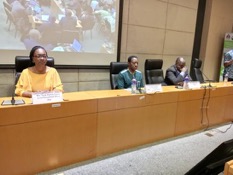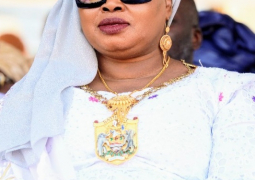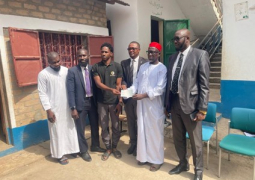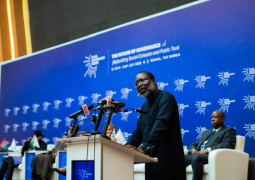
“It is therefore critical to ensure that robust procurement systems are put in place, not only to ensure value for money but also to alleviate fiscal pressure on public budgets, thereby contributing to better resource allocation and ultimately enhancing the delivery of services.”
Jaiteh, who was speaking at the opening of IFAD Regional Procurement Workshop, held in Banjul, said.
“Procurement is at the heart of every project and is a key driver for successful implementation. A well-functioning procurement system directly correlates to timely delivery, quality of good and services and overall success.”
This year’s convergence, which marked the third of its kinds, brought together 140 delegates from more than 20 Anglophone countries in West Africa, including IFAD staff, project coordinators, government representatives, consultants, finance managers, and procurement managers.
Public procurement, he said, has evolved from an administrative to a strategic function with the overarching principles of value for money, integrity, and sustainable outcomes, saying: “It is a complex development tool that impacts multiple sectors of the economy presenting both opportunities and challenges.”
He added: “These opportunities include timely delivery of high-quality public services, promotion of sustainability through a focus on ‘green’ products and services; supporting micro, small, and medium enterprises; enhancing trade and competitiveness; improving transparency through the use of new technologies, and reducing corruption.”
The GPPA managing director also said: “A significant portion of IFAD and government budgets -estimated at 82-85% - is channeled through procurement units that contract suppliers of goods and services. It is therefore crucial to prioritize efficient and effective procurement practices to optimize this substantial investment.
“Despite its potential, however, losses through inefficiency and corrupt practices remain key procurement challenges. Weak local markets and limited procurement capacity present additional hurdles.”
He continued: “It is therefore critical to ensure that robust procurement systems are put in place, not only to ensure value for money but also to alleviate fiscal pressure on public budgets, thereby contributing to better resource allocation and ultimately enhancing the delivery of services.”
The workshop was held to address these challenges through open discussions, case studies, and analysis of country-specific situations, while aligning with IFAD’s principles of efficiency, transparency, and value for money.
Concluding, Mr Jaiteh said IFAD is committed to improving public procurement systems and has developed innovative tools to enhance efficiency. “One such tool is the Online Procurement End-to-End System-OPEN, which ensures quality in our operations and provides unprecedented visibility into procurement plans through advanced analytics.”
Marchisio Matteo, from IFAD Office in Dakar, Senegal, underscored the significance of the convergence, saying: “During the course of the forum, participants will be exposed to various topics relating to procurement with a view to widening their understanding on procurement. Therefore, I urge you all to interact and take advantages of the training in order to implement what you learn during the training to your respective organisations.”
IFAD’s senior Procurement Officer Toure Yemitia Carine said: “As we embark on this journey together over the next few days, we must first acknowledge the critical role that public procurement plays in our society. It is not merely a process of acquiring goods, services or works; it is an essential mechanism through which governments and IFAD can promote transparency, ensure accountability, and drive sustainable economic growth.”
She cautions: “The decisions we make in procurement have far-reaching implications, influencing everything from local job creation, to socio-economic development and environmental sustainability.”




